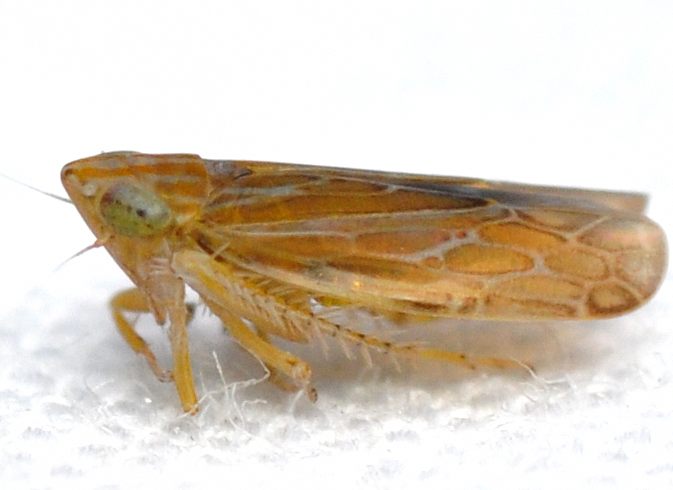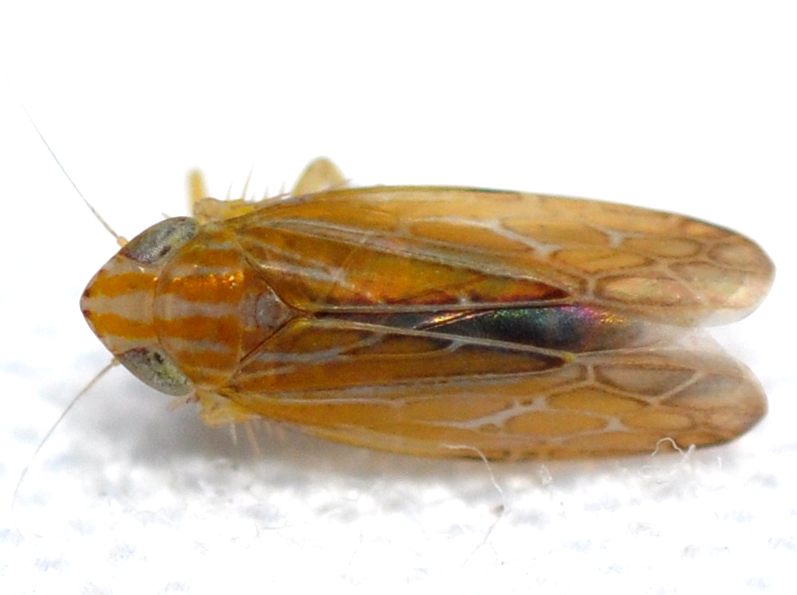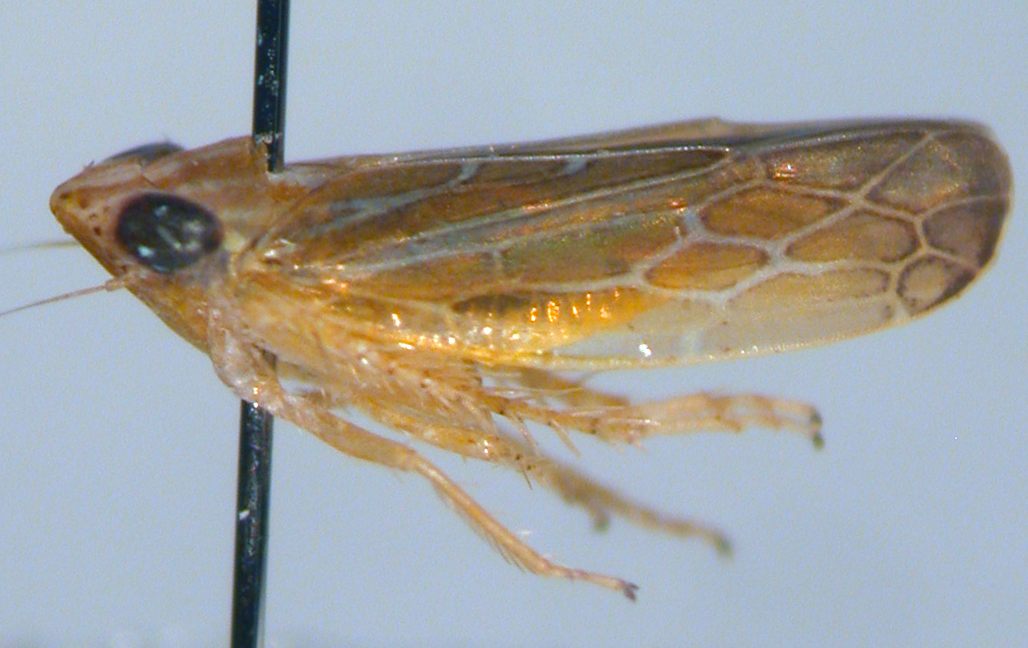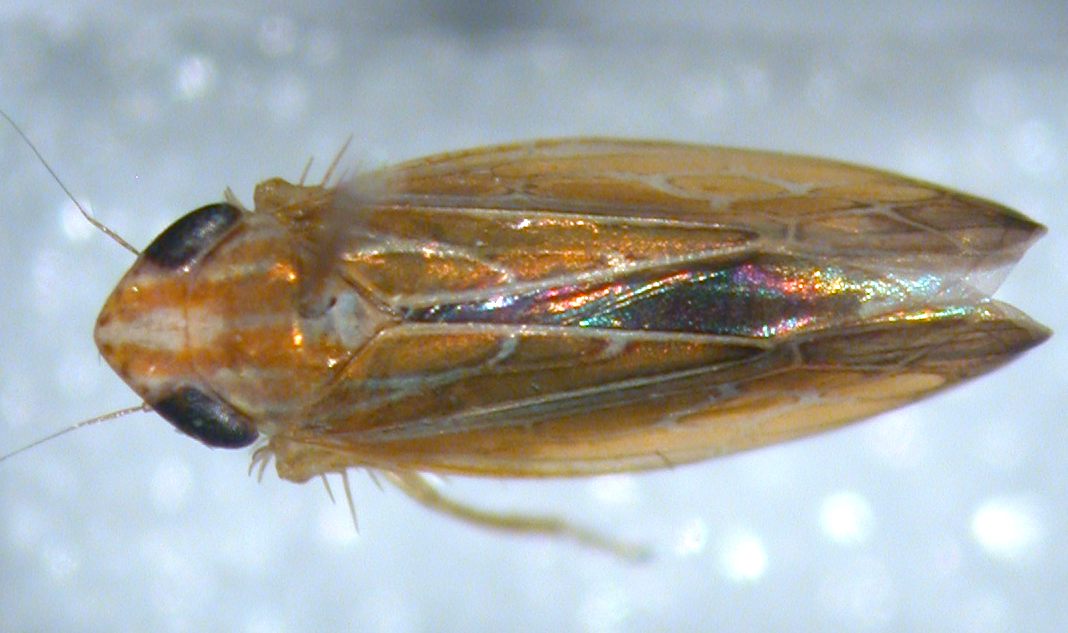
|
|
|
| synonym |
|
| description |
A species with a distinctive coloration and a broad, bluntly angled vertex that is about 1/4 wider between the eyes than the median length. The margin of the vertex usually lacks dark or white bands and is typically without dark markings; occasionally there is a black line on the margin. The vertex is only marked by a pair of broad longitudinal orange stripes, with two faint dark spots near the vertex tip inside the orange bands; these orange bands extends onto the pronotum, with a couple more smaller orange bands on either side. The female pregenital sternite is truncated/emarginate with a narrow incision in the middle that extends 2/3 of the way to the anterior margin. The male genital plates have broad bluntly rounded apexes that are divergent from one another. Adults are around 5.0 mm long. (DeLong 1941) |
| distribution |
Southeastern United States, previously known from MS and SC; now known from NC |
| abundance |
A few records from the Coastal Plain; likely more abundant in the right habitat. |
| seasonal_occurrence | |
| habitat |
Moist areas where the host plant grows. |
| plant associates |
Cane/native bamboo (Arundinaria tecta) |
| behavior |
Can be attracted at night with a light. |
| comments |
NOTE: Arundanus is a genus that consists of a number of species that look like one another. It is therefore important to get a clear, detailed picture of the underside to determine species identification; however, rubralineus has a somewhat distinctive color pattern.
HOWEVER, there is some variation among individuals in this species. Some females have V-shaped notches in the pregenital sternite; this notch is quite broad and deep, with the excavation extending halfway to the base. There is a black spot at the apex of the excavation. DeLong denoted these individuals as A. rubralineus var. excavatus and noted "it is not possible to determine [at the time] whether the female character is variable or if this may be a distinct species" (DeLong 1941). Joel Kits notes that based on DeLong's diagrams, and the specimen from Gates county, var. excavatus is likely a different species (type locality in Mississippi) whereas individuals from the Carolinas are likely true rubralineus. Collecting females of this species, especially those with this variation in the pergenital sternite, can help determine if there is a cryptic species present. |
status |
[Native:]
[Introduced:]
[Extirpated:] | | list_type |
[Official:]
[Provisional:] |
| adult_id | Unmistakable and widely known Identifiable from good quality photos of unworn specimens
Identifiable from photos showing undersides, or other specialized views [e.g., legs, face]
Identifiable only by close inspection of structural features or by DNA analysis NULL |
| nymph_id | Unmistakable and widely known Identifiable from good quality photos, especially where associated with known host plants
Identifiable from close inspection of specimens or by DNA analysis
Identifiable only through rearing to adulthood NULL |
| G_rank |
[GNR] |
| S_rank |
[S2S4] |
| rank_comments |
|
| tribe |
Deltocephalini |
| subgenus |
|
Species Photo Gallery for Arundanus rubralineus No Common Name |
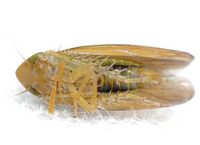 | Photo by: Kyle Kittelberger, Paul Scharf
Gates Co.
Comment: near mixed hardwood forest | 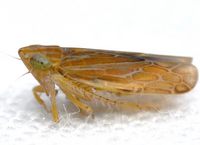 | Photo by: Kyle Kittelberger, Paul Scharf
Gates Co.
Comment: near mixed hardwood forest |
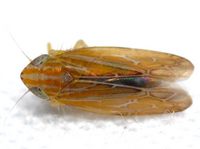 | Photo by: Kyle Kittelberger, Paul Scharf
Gates Co.
Comment: near mixed hardwood forest | 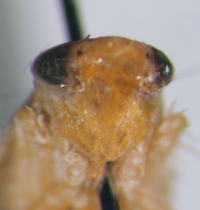 | Photo by: Bo Sullivan
Scotland Co.
Comment: male, 4.6 mm |
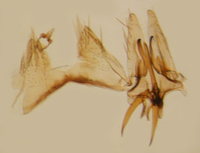 | Photo by: Bo Sullivan
Scotland Co.
Comment: male, 4.6 mm | 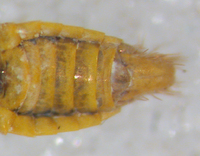 | Photo by: Bo Sullivan
Scotland Co.
Comment: male, 4.6 mm |
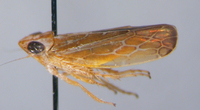 | Photo by: Bo Sullivan
Scotland Co.
Comment: male, 4.6 mm |  | Photo by: Bo Sullivan
Scotland Co.
Comment: male, 4.6 mm |
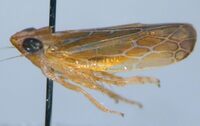 | Photo by: Bo Sullivan
Scotland Co.
Comment: male, 4.6 mm | 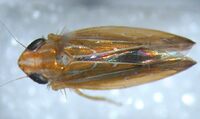 | Photo by: Bo Sullivan
Scotland Co.
Comment: male, 4.6 mm |
|

 »
»